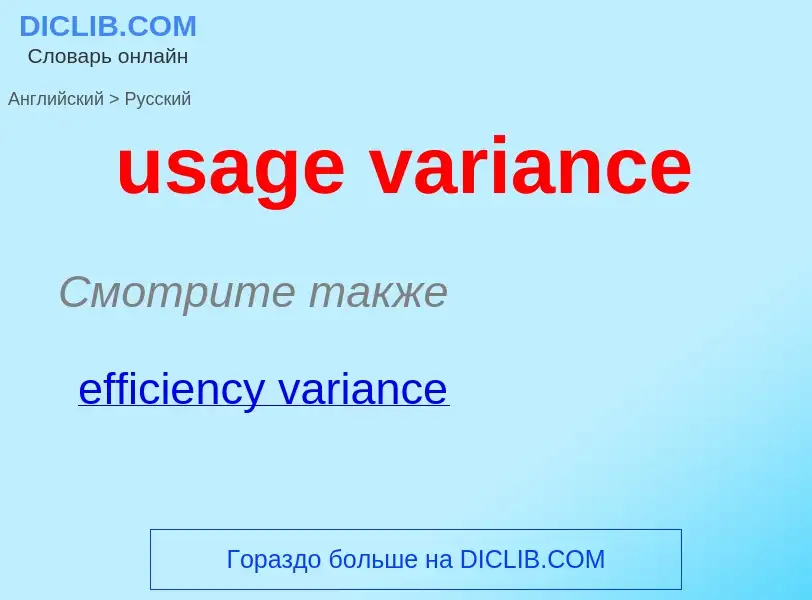Traduzione e analisi delle parole tramite l'intelligenza artificiale ChatGPT
In questa pagina puoi ottenere un'analisi dettagliata di una parola o frase, prodotta utilizzando la migliore tecnologia di intelligenza artificiale fino ad oggi:
- come viene usata la parola
- frequenza di utilizzo
- è usato più spesso nel discorso orale o scritto
- opzioni di traduzione delle parole
- esempi di utilizzo (varie frasi con traduzione)
- etimologia
usage variance - traduzione in Inglese
Смотрите также
['ju:zidʒ'ju:sidʒ]
общая лексика
употребление, использование
коэффициент загрузки
узус
употребление
медицина
использование
нефтегазовая промышленность
применение
эксплуатация
существительное
общая лексика
обращение
употребление
применение
использование
узус
обычное употребление (слов, выражений и т. п.)
обычай
обыкновение
обхождение, обращение
обычай, обыкновение
словоупотребление
юриспруденция
торговый обычай
Definizione
Wikipedia
The usage of a language is the ways in which its written and spoken variations are routinely employed by its speakers; that is, it refers to "the collective habits of a language's native speakers", as opposed to idealized models of how a language works or (should work) in the abstract. For instance, Fowler characterized usage as "the way in which a word or phrase is normally and correctly used" and as the "points of grammar, syntax, style, and the choice of words."
In the descriptive tradition of language analysis, by way of contrast, "correct" tends to mean functionally adequate for the purposes of the speaker or writer using it, and adequately idiomatic to be accepted by the listener or reader; usage is also, however, a concern for the prescriptive tradition, for which "correctness" is a matter of arbitrating style.
Common usage may be used as one of the criteria of laying out prescriptive norms for codified standard language usage.
Modern dictionaries are not generally prescriptive, but they often include "usage notes" which may describe words as "formal", "informal", "slang", and so on. "Despite occasional usage notes, lexicographers generally disclaim any intent to guide writers and editors on the thorny points of English usage."

